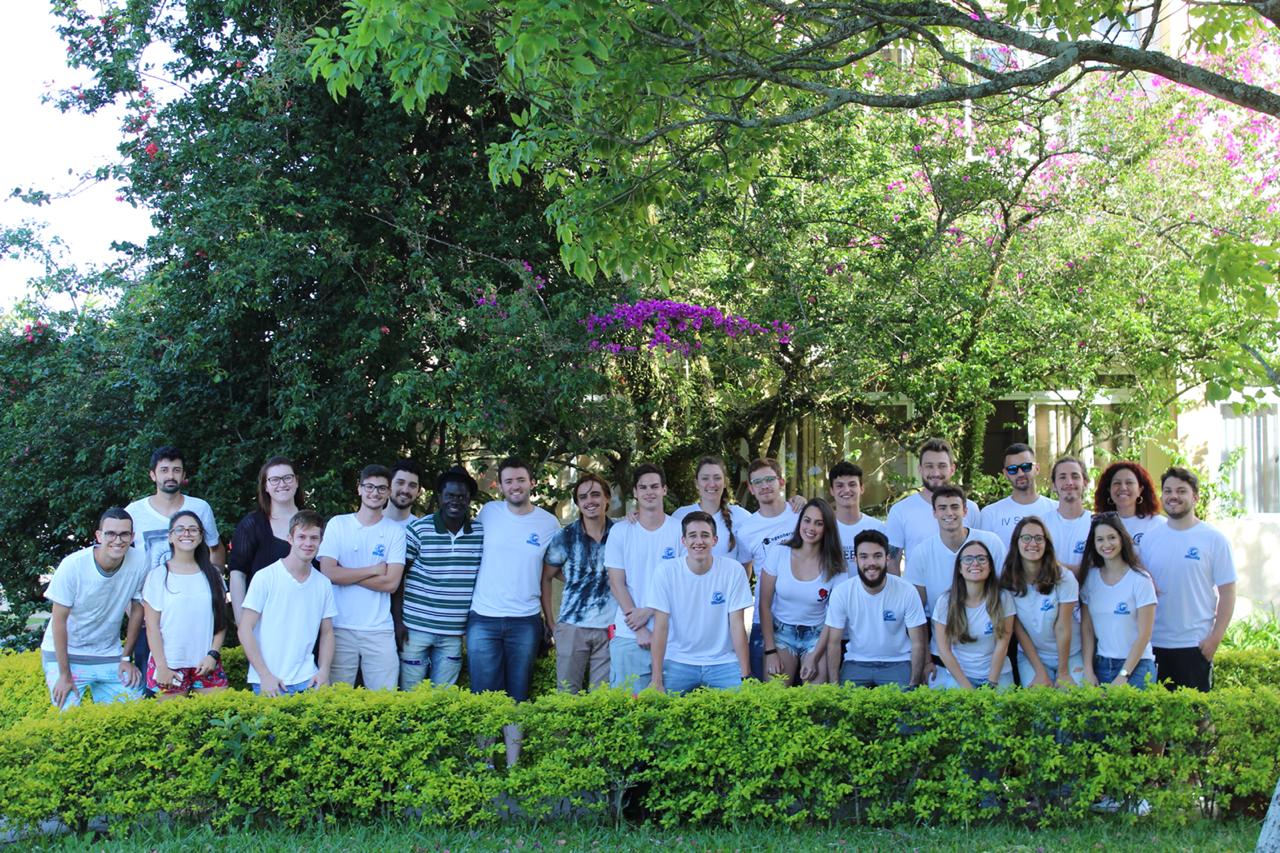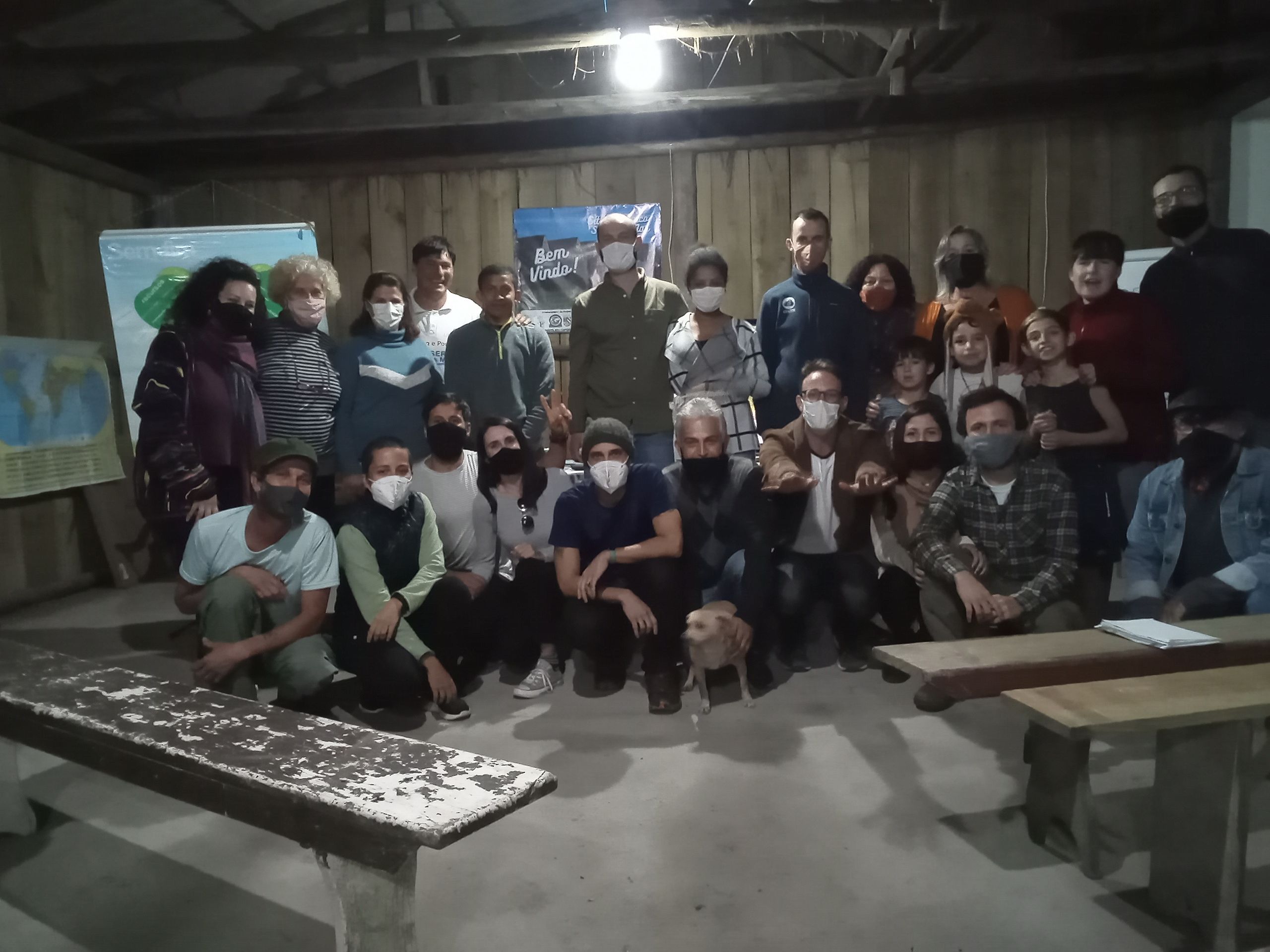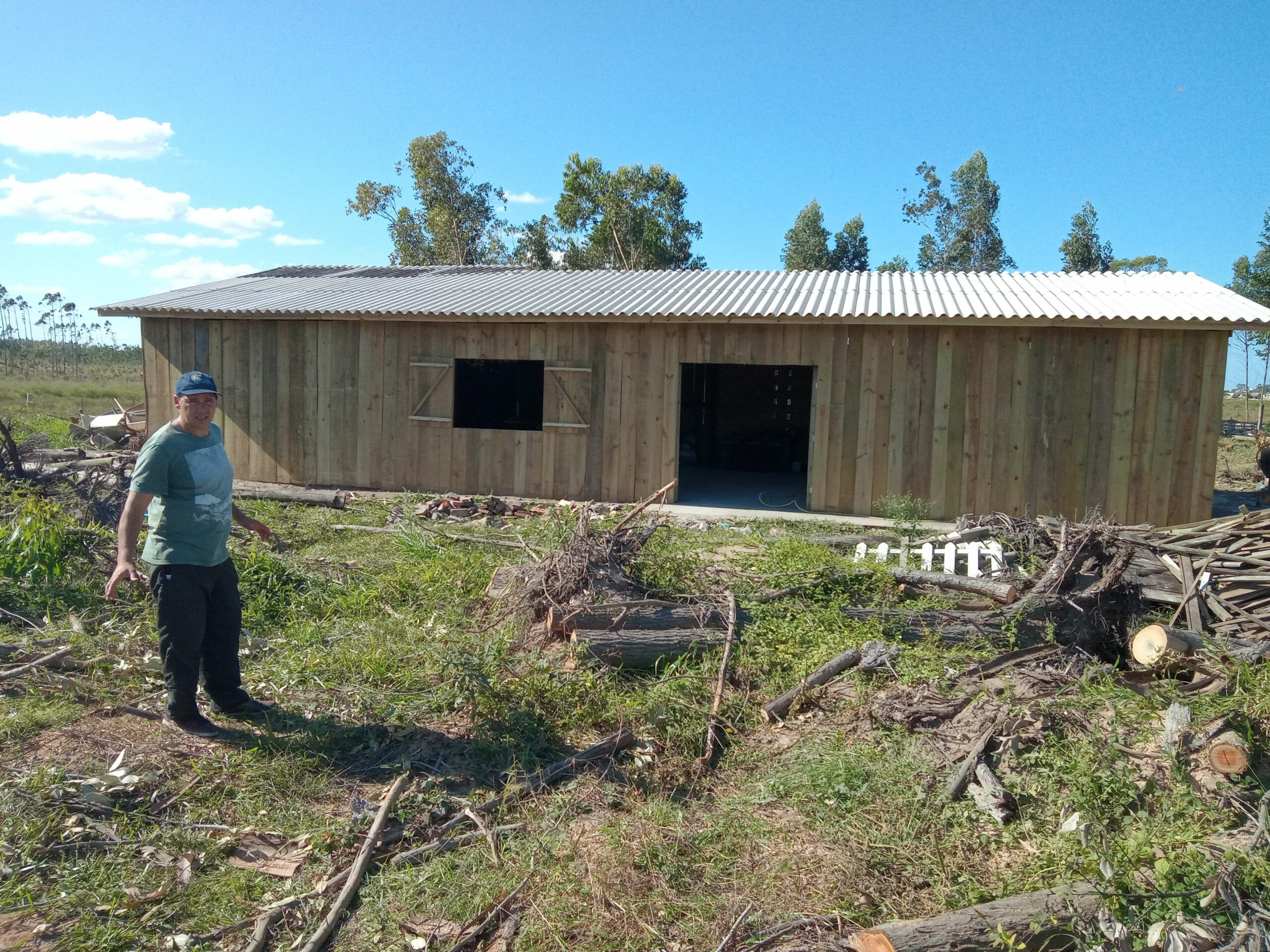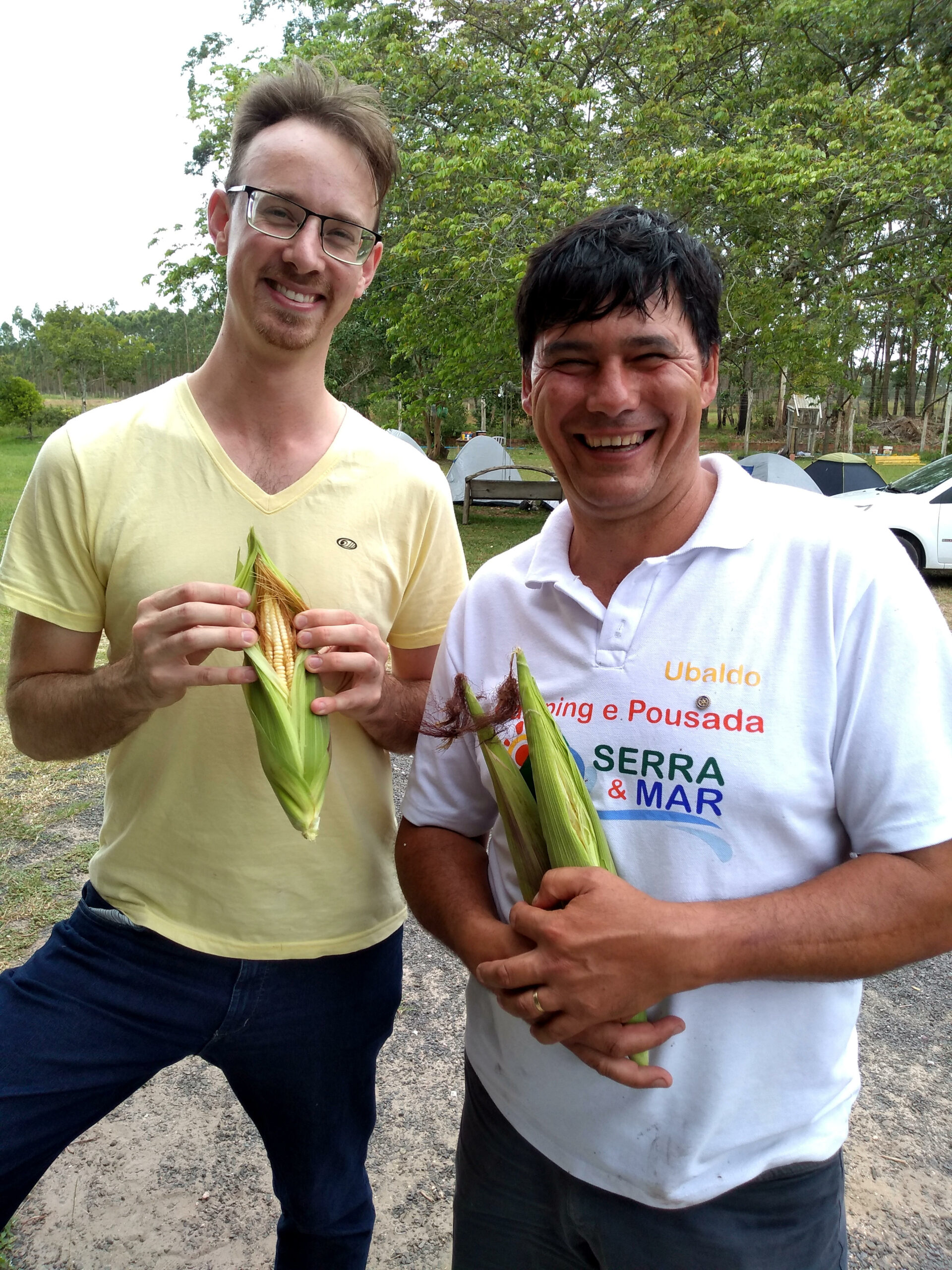Regional group Araranguá
About us

- Regular meetings
At the UFSC – Campus Jardim das Avenidas
Biofermenter
Monday between 13.00 and 14.00 in room 324MakerSpace Container
Thursday between 13.00 and 14.00 hrs in room 317(Due to the current Corona Pandemic all meetings are online)
- Bank account
- Associacao Tecnica sem Fronteiras; CNPJ: 31.059.883/0001 39; Banco: SICOOB Credisul (756); Conta: 000000537047; Agência: 3074
- Project focuses
- Energy, Education, Agroforestry
- Kontakt
- E-Mail an die RG
Information

Conclusion workshop about agroforestry systems
The last work package of our agroforestry project was fulfilled on 10.07.2021: A public workshop…July 19, 2021

Training center and educational trail under construction
Our Agroforestry Project in Brazil has achieved another of its goals: the conversion of an…May 20, 2021

First harvest and further planning
Since the implementation of the agroforestry system (AFS) at the Camping and Pousada Serra e…January 21, 2021
The regional group of Technology without Borders in Brazil is was founded in 2017 as Brazilian association acording the brazilian law. Our group is located at the Federal University of Santa Catarina (UFSC) in Araranguá, in the state of Santa Catarina. In order to support engineering students in the implementation of low-cost technologies in developing regions, the association aims to improve the living conditions of developing countries. The Ideia emerged in Germany, in the city of Nuremberg in 2010, where the association Technik ohne Grenzen was founded.
Our members are professors and students from different areas such as energy engineering and IT and receive support from professionals and companies to develop their projects.
Our regional group works primarily in three areas:
1. Development and implementation of low-cost energy technologies in the region of Araranguá, promote effective use of available energy resources and renewable energy as part of sustainable development.
2. Providing training and education to local populations about these technologies and encouraging sustainable development through, for example, micro-enterprise initiatives.
3. an agroforestry pilot project in cooperation with local organic farmers.
